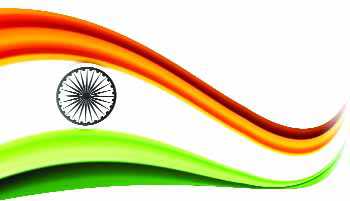For on-the-move young Indian, who has seen phone booths of the ‘90s and internet cafes, an international call is just an “internet pack” away — the world has become smaller. At a time when the global Indian has found a face in the likes of Google CEO Sundar Pichai, a 1993 alumnus of IIT-Kharagpur, and Flipkart founders Nitin Bansal and Sachin Bansal, who recently opened shop in Silicon Valley, the expectations from the home country are higher.
As they voice their concerns over cleanliness, equality, and freedom, the youth identify themselves with the nation on a more realistic level. They are comfortable with India’s growing economic might but feel Indians have to learn a lot to be more professional. Their concept of freedom also involves being truly an individual first, in terms of gender and social status.
Swacch Bharat
For Nitin Saluja (28), the policy programs manager for India and South Asia of Facebook and a graduate from the prestigious London School of Economics, cleanliness sets foreign countries apart from India. “It is the first thing that hit me when I travelled abroad for the first time,” he says. Having visited many countries, Nitin feels India is a brand in itself because of its rich heritage and diversity. According to Nitin, India’s biggest asset is its “huge young population”. On how he feels India has grown over time, the New Delhi resident shares his experience of the London Tube. “I remember commuting in it in 2011; it was quite dirty. The Delhi Metro is far cleaner. By those standards, India has come a long way in these 69 years,” he says.
‘Power to women’
Anuradha Beniwal (29), a former national chess champion and now a Hindi author, first travelled abroad to represent India at a chess tournament in Spain 15 years ago. “It was liberating and confusing,” she says. Anuradha is now settled in the UK. In December 2015, she released her first Hindi book, Mera Brand Aazaadi, which was based on her travels across Europe in Rs 1 lakh.
The girl who hails from Rohtak, the limited interaction between the two sexes and moral policing are the biggest problems in the country. “Though there are countries in Eastern Europe that are more conservative, there still is a visible difference between how girls are treated in India and how they are treated abroad,” she says. “Here, in the UK, girls and boys don’t need a societal approval to talk to each other.”
‘Want more freedom’
Freedom and professionalism: These are the two things that Abhishek Singhania (29) feels are still missing in India. Having grown up in Chandigarh, Abhishek lived in New York in 2015 for pursuing a course in contemporary dance. Though Abishek is now based in Bangalore and is teaching there, he says he felt the most liberated in life during his time in the United States. Abhishek, who worked as busboy at a New York-based restaurant, says there is a level of professionalism and respect even between seniors and their subordinates in the US. “It doesn’t exist in India,” he says.
‘Staring eyes’
Born to an Iranian father and a Punjabi mother, Aryana Vala (22) identifies herself as a “global citizen”. She has travelled to and lived in the Middle East, South East Asia, Europe, and America, and is now studying masters in social work in Tazmania, Australia. For Aryana, India’s biggest problem is the “log kya kahengay” dialogue that mothers use to control their daughters. “There are no such expectations abroad. I can wear anything and go to obscure places with my boyfriend without inviting any stares. On the other hand, the situation is such in India that when I was visiting home in Chandigarh with my Australian boyfriend this year, people refused to rent their house because we are not married. It was expected, but still disheartening.” Aryana finds it convenient to live abroad, for it spares her of the 10 extra steps required to get anything done in India. “I went to Panjab University for admission once. Since I have not studied in India throughout, they had a problem with my certificates. There was no such problem in Australia.”
‘India-born confused Americans’
For Rohit Aggarwal (38), an associate professor at the University of Utah who has been living in the USA for the past 13 years, India scores poorly because of its “cripplingly slow judiciary”. “There’s more racism in India than abroad. We treat people from the Northeast differently, as if they are not our fellow countrymen,” he says.
Such has been the influence of Internet on Indians in India that there’s a joke in the diaspora circles in the US. He says. “So, the second generation of NRIs were referred to as ABCDs, short for America-born confused desis. Now, we have IBCAs, or India-born confused Americans.”
— amarjot@tribunemail.com
Unlock Exclusive Insights with The Tribune Premium
Take your experience further with Premium access.
Thought-provoking Opinions, Expert Analysis, In-depth Insights and other Member Only Benefits
Already a Member? Sign In Now










